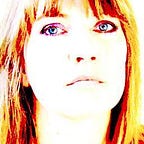Against Creativity
It’s time to do away with a lazy concept that does more harm than good
Imagine waking up tomorrow to find that your world has been divided into two camps, those who are “loving” and those who are not. This ability to love is a quality many admire, and few understand. Some say it can be learned, although most of those identified as “loving” don’t remember learning how to “do” it. Others say the ability to love lies dormant in all of us. Most see it as some kind of alchemical gift.
In this new world, a lot of books are written about how to foster the ability to love. Other books are written about how loving people are better suited to certain occupations and lifestyles, going so far as to cordon off a “loving class.” Still more sour-grape-flavored blog posts are written about how people who love are naturally disinclined to succeed in business, or balance a checkbook, or entertain rational thought. Some proudly self-identified non-lovers view them as idiot savants whose special abilities come at the expense of the ability to function “normally” in society.
Meanwhile the “loving classes,” weary of so much judgment, happily form their own little ghettoes—ghetto communities, ghetto professions, ghetto economies—where they become increasingly self-referential and insular, forming their own culture and dialect. Their failure to participate in the larger economy only reinforces the stereotype that they are somehow constitutionally tangential to it.
As absurd as such a universe sounds, that is exactly the mechanism by which our culture has cordoned off this aspect of human life we call “creativity.”
The absurdity of separating those-who-love from those-who-don’t is patent. We know that love is an essential component of a healthy human personality. Some are reserved, others gush, and others obsess, but very few are considered incapable. A class of people incapable of love does exist—they’re called psychopaths. In our world, the absence of love isn’t a personality trait; it’s a defect.
I submit that “creativity” is just as broad, and broadly necessary, to human functioning as the collection of impulses, conditions and skills we’ve labeled love.
What is the benefit of re-conceiving creativity as a basic human capacity, rather than a gift? It lets us stop talking about it in isolation, and start thinking instead about what we really mean by it.
In practice, I think we use the term “creativity” too loosely. We apply it to an entrepreneur who is able to perceive a business opportunity in the midst of a disaster, and to a watercolorist who can make the surface of a pond reflect the side of the barn in an eerily realistic way. What those two abilities have to do with one another is anyone’s guess. I’ve known brilliant fine artists whose problem-solving abilities were inferior to those of your average brine shrimp, and brilliant problem-solvers who can’t even see a compound curve, let alone draw one.
When we say “creative” we can mean any number of things. The category is so broad as to be meaningless. So, what would happen if we started to use the word creativity less?
I once worked for a managing editor at a start-up who defined “creative projects” as those that did not attach to an identifiable revenue stream. Nothing to do with the content of the project—the mere fact that it didn’t make money was enough to earn it the pejorative label of “creative.” To wit: Creative work doesn’t make money, therefore work that doesn’t make money is creative. To this day I wonder what difference it would have made had we called those projects “speculative” instead of “creative.” Would they have appeared risky but promising, instead of futile and self-indulgent?
I grew up in a non-normative household—my father is an inventor, my mother a designer and author. I didn’t know it was creative; to me it was just home. But we were an entrepreneurial family, too—no one I had regular contact with growing up held a job. We were all freelance professionals or business owners. Perhaps coincidentally, no one on either side of my family worshipped, either (I didn’t know there was such a thing as religion until I was old enough to visit friends’ houses). Most people describe my family as “creative.” But if I had to choose a word to describe the ethos of my upbringing, it would be neither creative nor entrepreneurial. I would choose the word irreverent.
As a writer I can tell you that a more specific, meaningful word is always more active and potent than a broad, overused one.
I doubt there are many circumstances in which the word creative cannot be replaced by a better one. Although if we do so consistently, we risk making our discourse on human potential (see “creativity”) actually meaningful (see “creative”).
Hillary Louise Johnson is the founder of Dymaxicon, a publishing company, the author of Physical Culture, a novel, and co-author of the bestselling software book The Elements of Scrum.
